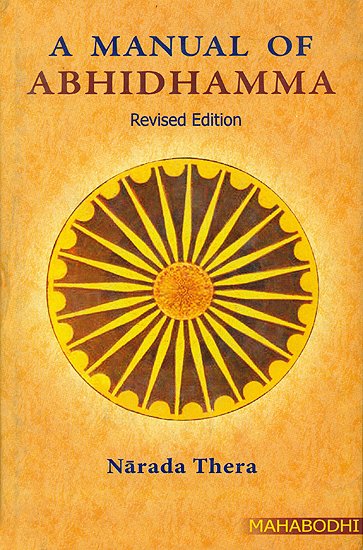A Manual of Abhidhamma
by Nārada Thera | 80,494 words | ISBN-13: 9789380336510
In the Abhidhammattha Sangaha there is a brief exposition of the Law of Dependent Origination, followed by a descriptive account of the Causal Relations that finds no parallel in any other philosophy. Edited in the original Pali Text with English Translation and Explanatory Notes by Narada Maha Thera....
Definition
§ 1.
Ekuppāda-nirodhā ca - ekālambanavatthukā
Cetoyuttā dvipaññāsa - dhammā cetasikā matā.
§ 1.
The fifty-two states that are associated with consciousness, that arise and perish together with consciousness, that have the same object and basis as consciousness, are known as cetasikas (mental states).
Notes:-
1. Cetasika = Ceta + s + ika
That which is associated with mind or consciousness is cetasika. (Sanskrit - caitasika or caitti).
Cetasika is
- that which arises together with consciousness,
- that which perishes together with it,
- that which has an identical object with it,
- that which has a common basis with it.
Readers will note that the author has not given here a logical definition according to genus and species. Instead he speaks of four characteristic properties of a cetasika. The Commentator cites reasons for attributing these four properties.
No consciousness exists apart from its concomitants. Both consciousness and its respective co-adjuncts arise and perish simultaneously. But there are some material qualities such as viññatti rūpa* (Modes of Intimation) - that arise and perish simultaneously with the consciousness. To exclude them the third property of having a common object has been attributed. That which possesses these three characteristics must necessarily be endowed with the fourth - a common basis.
*[ Kāyaviññatti (mode of action) and Vaci Viññatti (mode of speech)]
According to Abhidhamma, mind or consciousness is accompanied by fifty-two mental states (cetasikas).
One of them is vedanā (feeling); another is saññā (perception). The remaining fifty are collectively called sankhārā. Cetanā (volition) is the most important of them.
The whole group of feelings is called vedanā-kkhandha. So are saññā-kkhandha and sankhāra-kkhandha.
